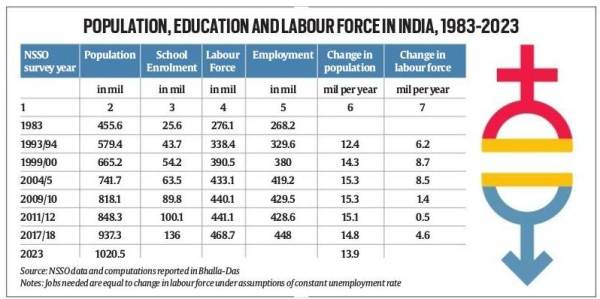Jobs, in perspective
India does not need 12 million jobs a year, it needs less than 5 million. A large part of the so-called jobs crisis is because of demand for government jobs, not jobs per se

As and when the NSSO Employment-Unemployment report for 2017-18 is released (the new name is Periodic Labour Force Survey), we will learn about the employment situation in India circa 2017-18; that is the total number of jobs created between the last NSSO survey of 2011-12 and 2017-18. The survey will not tell us how many jobs were created in 2017-18; for that we have individual non-NSSO surveys and methods, the most prominent being the estimates based on EPFO and CMIE data. The latter two vary by a significant amount with the former suggesting that around 7-10 million jobs were created in 2017-18, and the latter indicating that virtually no jobs were created (actually a decline of 0.5 million).
Tirtha Das and I, in a report prepared for the PMEAC (available on EAC website and http://ssbhalla.org/paper/employment), indicate that the PLFS data are likely to report that employment (by the commonly used measure according to “principal status”) in India in 2017-18 was around 448 million in 2017-18, an increase of 20 million jobs between 2011-12 and now. How good is this job creation? How does it compare with what happened earlier? These questions gain salience as 2019 is an election year, and one in which job creation is being hotly debated.
There are several reasons to expect that job creation between 2011-12 and 2017-18 will be much less than during 2004-5 and 2011-12. As many domestic and international experts have speculated, job creation worldwide is less now because of robots (artificial intelligence) and a decline in global GDP growth. These international factors are not the concern of those looking for a job, who are naturally upset if there aren’t enough jobs. This can have political consequences, as the shrill campaign by the Congress — where are the jobs? — seem to suggest.








































No hay comentarios:
Publicar un comentario